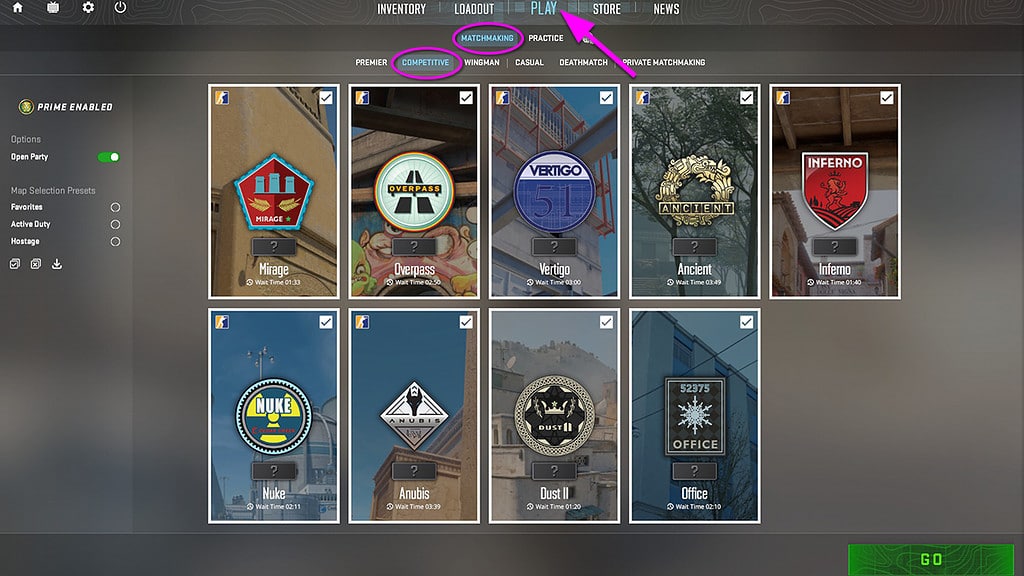The Ultimate Guide to BaoXing Bags
Explore the latest trends and styles in BaoXing bags.
Matchmaking Mayhem: Why CS2 Needs a Reality Check
Dive into the chaos of CS2 matchmaking and discover why it's time for a reality check! Uncover shocking truths and bold solutions now!
The Flaws in CS2's Matchmaking: A Deep Dive
In the competitive landscape of Counter-Strike 2 (CS2), matchmaking plays a crucial role in shaping player experience. However, many players have voiced their concerns regarding the flaws in CS2's matchmaking system. One of the prominent issues is the skill discrepancy between players. Matchmaking sometimes fails to accurately gauge player skill levels, resulting in matches where teams lack balanced abilities. This not only affects the enjoyment of the game but also leads to a frustrating experience for players who may feel outmatched. Moreover, this discrepancy can create an unfair environment where highly skilled players consistently dominate lesser-skilled opponents.
Another significant flaw lies in the queue times and wait periods players face before entering a match. While the intention may be to create a more balanced match, extended wait times can drive players away from the game entirely. Additionally, issues such as smurfing and cheating severely disrupt the matchmaking balance, as these practices often lead to unqualified players enjoying an unfair advantage. To enhance the overall gaming experience, it's imperative that the developers address these matchmaking issues, fostering a fairer and more enjoyable environment for all players in CS2.

Counter-Strike is a highly popular tactical first-person shooter game that has captivated millions of players worldwide. In its latest iteration, players have reported various issues, including the cs2 black screen on launch, which can hinder the gaming experience. The game features competitive gameplay, teamwork, and a variety of maps and modes, making it an enduring favorite in the esports community.
Is CS2's Matchmaking System Broken? A Closer Look
The matchmaking system in CS2 has been a topic of heated debate among players since its release. Many gamers express their frustrations regarding the perceived inefficiencies in the way matches are organized. One major concern is the skill gap that often leads to unbalanced teams, resulting in lopsided games where new players contend with seasoned veterans. These imbalances not only ruin the gaming experience but also fuel the argument that CS2's matchmaking system might be fundamentally broken.
Furthermore, players have reported experiencing long wait times for matches, compounding their frustrations. Some argue that the system prioritizes quick match completions over fair play, which ultimately impacts player retention and satisfaction. To explore if CS2’s matchmaking system is indeed broken, we must examine player feedback closely, analyze statistical data on match outcomes, and understand the underlying algorithms that govern player pairing. Only then can we hope to identify solutions that restore balance and enjoyment in the game.
How Can CS2 Improve Its Matchmaking Experience? Solutions and Suggestions
One of the primary ways CS2 can enhance its matchmaking experience is by implementing more sophisticated algorithms that analyze player behavior, skill level, and play styles. By utilizing machine learning techniques, the game could more accurately match players with similar skill sets, resulting in more balanced and engaging matches. Additionally, introducing a dynamic ranking system that recalibrates players' ranks based on their performance over multiple games could lead to a more accurate reflection of a player’s true skill level.
Another suggestion is to integrate a feedback system where players can report their matchmaking experiences. This system could collect data on factors such as waiting time, match quality, and player behavior, allowing developers to continuously refine the matchmaking criteria. Furthermore, creating more diverse queue options, such as themed game modes or skill-specific matches, could cater to a broader player base and keep the gameplay experience fresh and exciting.